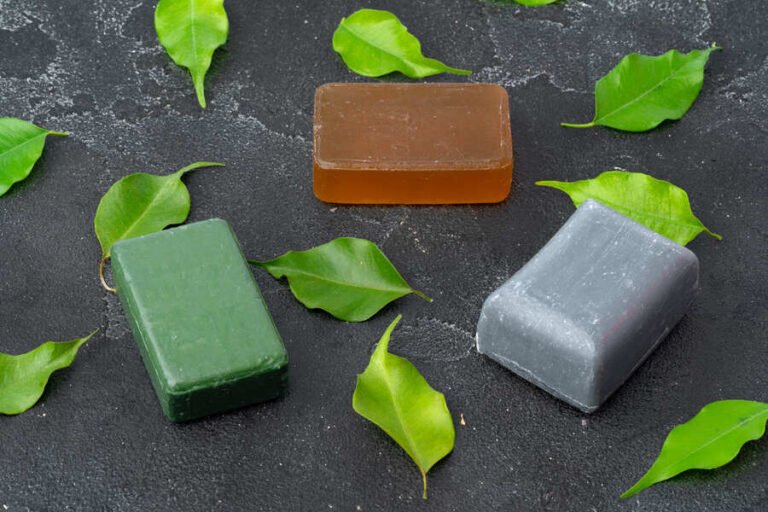Are you ready to unlock the secrets of the nail world? Get ready to dive into the ultimate showdown between dip powder, acrylic, and gel nails.
We've got all the juicy details you need to make an informed decision. From application techniques to longevity, hygiene to safety, and even removal methods, we've got you covered.
So, if you're itching to liberate your nails and find the perfect treatment, keep reading!
Key Takeaways
- Dip powder nails last longer than gel nails, with a duration of 4-6 weeks compared to 2-3 weeks for gel nails.
- Gel nails are considered more hygienic than dip powder nails.
- Both dip powder and gel nails can be safe if applied correctly by a trained nail technician.
- Gel nails are easier to remove compared to dip powder nails.
Pros and Cons of Dip Powder Nails
When considering dip powder nails, it's important to weigh the pros and cons.
Dip powder nails have become increasingly popular due to their long-lasting nature. One of the major advantages of dip powder nails is their durability, as they can last up to 4-6 weeks without chipping.
Additionally, dip powder nails don't require UV or LED curing, making them a healthier option for your nails.
On the downside, removing dip powder nails can be a bit more challenging compared to gel nails.
Another factor to consider is that dip powder nails require proper application and disposal to ensure hygiene and safety.
The Truth About Gel Nails: Debunking Myths
Don't believe the myths, gel nails aren't damaging to your natural nails and can actually promote nail health. There are several misconceptions about gel nails that need to be debunked. Let's set the record straight:
- Gel nails aren't harmful to your natural nails. Contrary to popular belief, the gel polish used in this type of manicure doesn't weaken or damage the nail bed.
- Gel nails don't cause your nails to become brittle. In fact, they can actually provide extra strength and protection to your natural nails, making them less prone to breakage.
- Gel nails don't hinder nail growth. Your nails can still grow and be healthy while wearing gel polish. The gel acts as a barrier, protecting your nails from external factors that can cause damage.
- Gel nails can be easily removed without causing damage. With proper removal techniques, gel nails can be safely taken off without harming your natural nails.
Now that you know the truth about gel nails, you can confidently choose this nail treatment without any fears or doubts. Gel nails are a great option for those who desire liberation from the myths and want to enhance the health and appearance of their nails.
Acrylic Nails Vs Natural Nails: Which Is Better
If you're wondering whether acrylic nails or natural nails are better, let's compare the two options.
Acrylic nails have their advantages and disadvantages. On the positive side, acrylic nails offer durability and strength, making them less prone to breakage. They also provide a canvas for intricate nail art designs. However, acrylic nails require regular maintenance, as they need to be refilled every 2-3 weeks to maintain their appearance. Additionally, improper removal or application can cause damage to the natural nail bed.
On the other hand, natural nails have their own benefits. They require less maintenance and are generally healthier than acrylic nails. To care for your natural nails, it's important to keep them clean and dry, moisturize the cuticles regularly, and avoid using harsh chemicals. Trimming them regularly and using a gentle nail file can help prevent breakage. It's also recommended to use a base coat and top coat to protect the nails and extend their longevity.
Nail Health: How to Maintain and Restore Your Nails
To maintain and restore your nails, follow these five simple steps:
- Start with a healthy nail care routine: This includes regular trimming, filing, and moisturizing of your nails and cuticles.
- Use nail restoration techniques: If your nails are damaged or weak, try using nail strengtheners, nourishing oils, and cuticle creams to restore their health.
- Avoid harsh chemicals: Be mindful of the products you use on your nails, and opt for formulas that are free of harmful chemicals like formaldehyde, toluene, and DBP.
- Give your nails a break: If you regularly wear nail enhancements like gel or acrylic, it's important to give your natural nails a break every few weeks to prevent damage and allow them to breathe.
By incorporating these practices into your nail care routine, you can promote healthy, strong nails and restore them to their natural beauty.
Tips for Choosing the Right Nail Treatment for You
When considering the right nail treatment for you, it's important to carefully evaluate your desired appearance and lifestyle preferences. Here are some tips for choosing the right nail treatment:
- Consult a professional: Seek advice from a trained nail technician who can assess your nails and recommend the best treatment option for you.
- Consider your desired appearance: If you prefer a natural-looking manicure, gel nails or dip powder nails may be the best choice. If you want longer nails or more dramatic designs, acrylic nails may be the way to go.
- Lifestyle considerations: If you lead an active lifestyle or work with your hands a lot, you may want a nail treatment that offers durability and flexibility. Gel nails are known for their strength and longevity.
- Benefits of professional nail care: Professional nail technicians are skilled in proper application, maintenance, and removal techniques. They can ensure your nails are healthy and well-maintained, reducing the risk of damage and infection.
Longevity Showdown: Dip Powder Vs Gel Nails
When it comes to comparing the longevity of dip powder nails and gel nails, you'll find that dip powder nails tend to last longer. Here are some key points to consider:
- Dip powder nails: Lasts 4-6 weeks, no UV or LED curing required.
- Gel nails: Lasts 2-3 weeks, cured under UV or LED light, offers flexibility and durability.
- Pros and cons of dip powder nails: Long-lasting, no need for curing, but removal can be more challenging.
- The truth about gel nails: Debunking myths, they're considered more hygienic but require proper removal to avoid damage to the nail beds.
Safety First: Ensuring Proper Hygiene in Nail Treatments
For optimal safety and hygiene in your nail treatments, be sure to follow these guidelines.
- Ensuring proper hygiene in nail treatments is of utmost importance to protect yourself from infections and other health risks.
- When visiting a nail salon, make sure that the salon is clean and well-maintained. The importance of sanitation in nail salons can't be stressed enough.
- The tools and equipment used should be properly sanitized and disinfected before each use.
- Nail technicians should also wash their hands thoroughly and wear gloves during the treatment.
- Disposable tools and single-use items should be used whenever possible.
- It's also crucial to ensure that the nail technician is properly trained and licensed, as they'll have the knowledge and skills to perform the treatment safely and hygienically.
The Removal Process: How to Safely Take Off Dip, Acrylic, or Gel Nails
To safely take off your dip, acrylic, or gel nails, follow these steps for a gentle removal process:
- Start by filing down the top layer of your nails to remove the shine and break the seal.
- Next, soak a cotton ball in acetone and place it on top of your nail.
- Wrap each finger with aluminum foil to hold the cotton ball in place and let it sit for about 10-15 minutes.
- After the allotted time, gently push off the softened product using an orangewood stick or a cuticle pusher.
It's important to remember that improper removal methods can lead to potential damage to your natural nails. By following these steps, you can safely remove your dip, acrylic, or gel nails without causing harm. Don't rush the process and be patient with each nail. Your nails will thank you for the care and attention.
Frequently Asked Questions
Can I Apply Gel or Acrylic Nails Over Dip Powder Nails?
Yes, you can apply gel or acrylic nails over dip powder nails. However, it is important to remove the dip powder properly to avoid damaging the natural nails. Seek professional advice for the best results.
Are Dip Powder Nails More Prone to Chipping Compared to Gel or Acrylic Nails?
Dip powder nails can be more prone to chipping compared to gel or acrylic nails. To prevent this, make sure to apply thin layers, avoid excess filing, and seal the edges.
Is It Possible to Remove Dip Powder, Acrylic, or Gel Nails at Home Without Damaging My Natural Nails?
Yes, it is possible to remove dip powder, acrylic, or gel nails at home without damaging your natural nails. Proper removal techniques and tools, such as soaking and gentle filing, can help prevent nail damage.
Are There Any Long-Term Effects on Nail Health From Regularly Getting Gel or Acrylic Nails?
Regularly getting gel or acrylic nails can have long-term effects on nail health. Comparatively, they may weaken and damage the natural nails due to the application and removal process. It's important to consider the impact on nail health before choosing these treatments.
What Are Some Alternative Nail Treatments to Consider if I Don't Want to Choose Between Dip, Acrylic, or Gel Nails?
If you don't want to choose between dip, acrylic, or gel nails, consider other alternative nail treatments. Each has pros and cons, so it's important to explore options that suit your preferences and lifestyle.
Conclusion
In conclusion, when it comes to choosing the right nail treatment for you, it's important to consider your preferences and nail health.
Dip powder nails offer long-lasting results and easy removal, while gel nails provide a glossy finish and flexibility. Acrylic nails are durable but require regular maintenance. Remember to consult a trained nail technician for expert advice and prioritize hygiene.
Finally, take care of your natural nails by giving them rest and proper maintenance. So, dive into the world of nail treatments and find the perfect fit for you!







